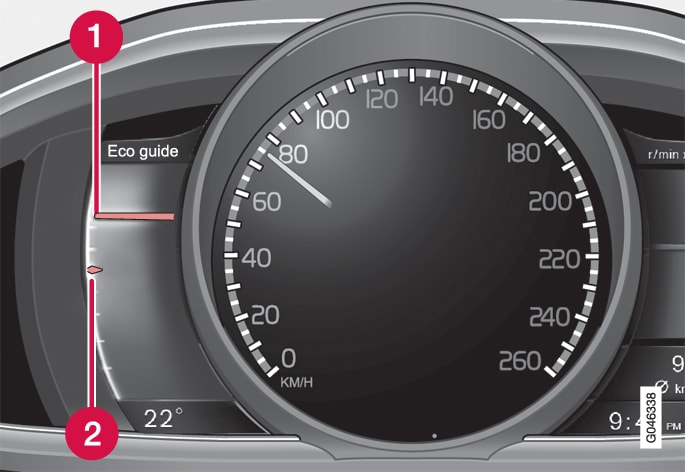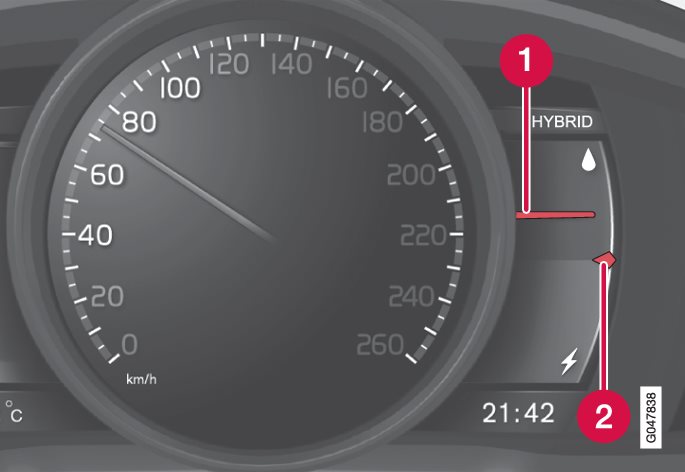Eco guide
This instrument provides an indication of how economically the car is being driven.
To view this function, select the theme "Eco"; see Digital combined instrument panel - overview.

 | Instantaneous value |
 | Average value |
Instantaneous value
The instantaneous value is shown here - the higher the reading on the scale, the better.
The instantaneous value is calculated based on speed, engine speed, engine power utilised plus use of the foot brake.
Optimum speed (50-80 km/h) and low engine speeds are encouraged. The pointers fall during acceleration and braking.
Very low instantaneous values illuminate the red zone on the meter (with a short delay), which means poor economy and hence should be avoided.
Average value
The average value slowly follows the instantaneous value and describes how the car has been driven most recently. The higher the pointers on the scale, the better the economy achieved by the driver.
Hybrid guide
This instrument shows the relationship between how much power is being taken from the electric motor and how much power is available.
To view this function, select the theme "Hybrid" or "Performance", see Digital combined instrument panel - overview.

 | Driver-requested power |
 | Available electric motor power |
Where the two pointers meet is the threshold for when the diesel engine starts/stops.
Driver-requested power
The large pointer indicates the amount of engine power requested by the driver by regulating the accelerator pedal. The higher the reading on the scale, the more power is requested by the driver in the current gear.
Available electric motor power
The small pointer indicates the amount of power currently available for the electric motor.
A large gap between the two pointers indicates a large power reserve.